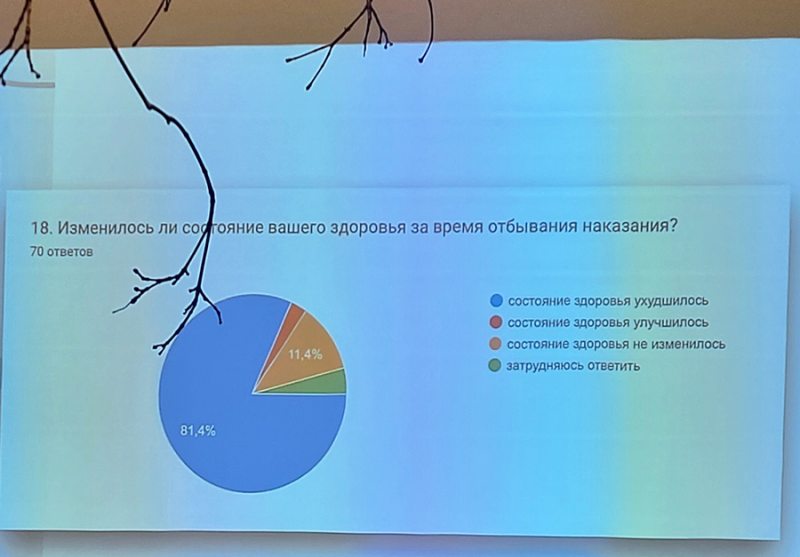"Healthcare in prison is a black mirror that each of us has looked into"
In Vilnius, on November 29, a public initiative Doctors for Truth and Justice held a conference on penitentiary medicine and psychology in Belarus. A team of experts, which included lawyers, doctors, former lawyers, and psychologists, prepared a series of reports where they talked about the problems prisoners face today, based on questionnaires from former convicts and their relatives among other things, and discussed what needs to be changed in the system. The results of a survey of former prisoners, their relatives, and friends, as well as a collection of articles and documents on the issue were presented.
"The first stage has been prepared for the development of the Concept of reforming medical and psychological healthcare for prisoners, and today we present a broad vision of work in this direction,” Vasil Zavadski, a doctor and former head of the medical service of the Ministry of Internal Affairs, outlined what has been done.
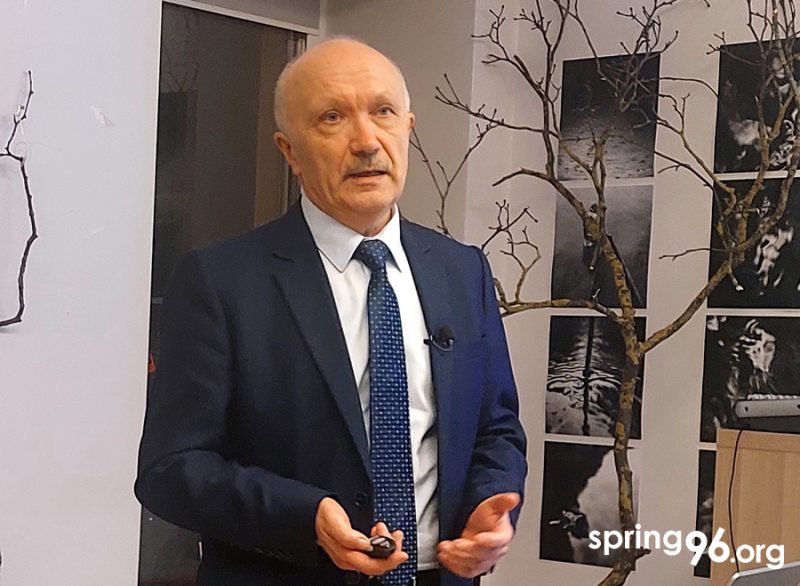
- Vasil Zavadski
Recently, a group of experts has been created; the existing regulatory framework and documentation have been studied and classified; a questionnaire has been conducted, and 70 former political prisoners have participated in it over the past two months; a number of priority tasks have been identified, among them:
-
the issue of release from imprisonment for health reasons;
-
ensuring medical secrecy;
-
psychological and psychiatric care;
-
the issuance of medicines in custody, receiving them from friends and relatives, the purchase of medicines at one's own expense;
-
norms and procedures for providing food, including vegetarian and vegan;
-
health insurance;
-
analysis of mortality and lethality in penitentiary institutions;
-
issues with labor therapy centres and others.
Vasil Zavadski analyzed in more detail what the price of medicine is in places of detention. There is evidence that it is difficult to get good dental care behind bars. Vasil Zavadski said that, for example, in one of the colonies where prisoners work with non-ferrous metals, they made dental crowns themselves.
The experts presented their reports on specific research areas and high-profile cases. Thus, lawyer and former employee of the Prosecutor General's Office Aleh Talerchyk focused on the case of Ihar Ptichkin, which revealed a number of existing problems. Ptichkin's case is one of the few cases in which a pre-trial detention center paramedic was convicted of the death of a prisoner.
One of the experts, who wished to remain anonymous, focused on the problem of sending patients from places of detention to hospitals. He is convinced that it is necessary to change the system of subordination of pre-trial detention centers and colonies, transferring them, for example, under the domain of the Ministry of Justice. Since now most of the contacts of an ill prisoner take place through investigators, although they are not medical specialists at all. It is easy to see this in the case of Maryia Kalesnikava, whose life was saved almost at the last moment, when she could no longer move for interrogations. But political prisoner Ales Pushkin, who had a similar diagnosis, was not saved on time.
Human rights activist and former political prisoner Leanid Sudalenka shared his own experience of being in places of incarceration with diabetes mellitus, comparing the situation in a pre-trial detention center and the Vićba colony, where he served his sentence. Sudalenka noted that there are difficulties in getting the necessary medicines in the colony since it takes a lot of time. Moreover, the prisoner must work, and exemption from hard work is not granted. There is also no opportunity to rest during the day.
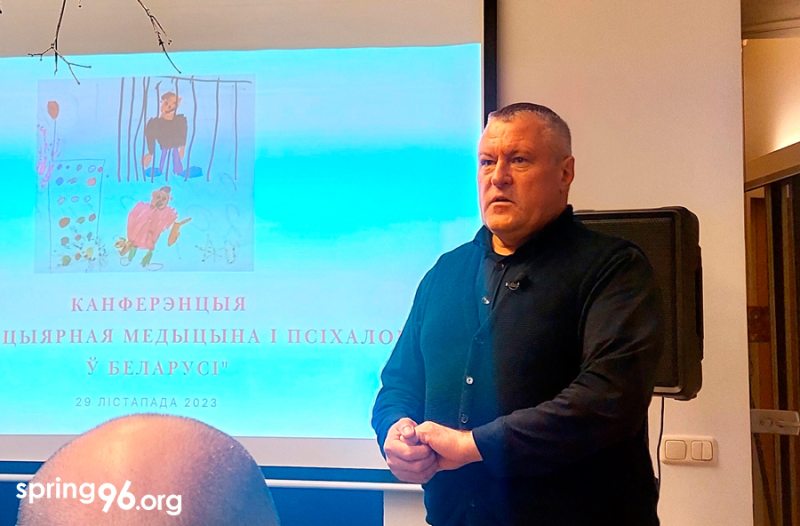
- Leanid Sudalenka
A separate problem is the measurement of blood sugar levels, which must be carried out regularly. For this procedure, a glucometer is used, which is prohibited in a pre-trial detention center or in a colony. During the entire time of serving his sentence, he was able to do it only once.
Psychologist Volha Vialichka spoke about the released prisoners of correctional institutions, stressing that incarceration does not correct a person, but does the opposite, deforming one's psyche. Thus, after three years of imprisonment, irreversible changes begin in a person, and after 5–7 years they become stable. As a result, one in three of the former prisoners commits a crime repeatedly, not managing to adapt to the environment which changed during their incarceration.
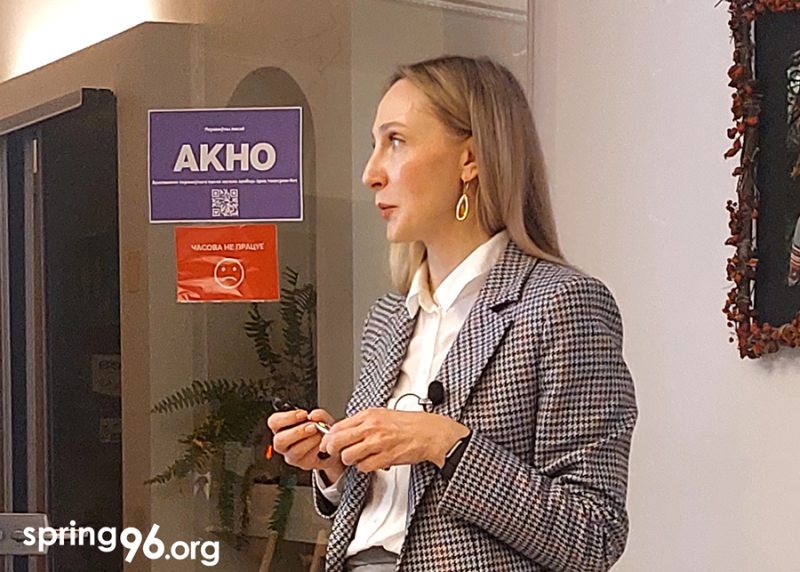
- Volha Vialichka
Pavel Perapiolkin, a doctor and former head of the medical unit of the pre-trial detention center, focused on the issue of people with addiction behind bars.
The Article 328 (on illegal trafficking of narcotic drugs) of the Criminal Code is usually applied with Article 108, which provides for compulsory treatment. However, there is virtually no addiction treatment in prison; just the possibility of drug use is excluded. As a result, the court decides that the prisoner is in remission and removes Article 108, but in fact the person with addiction just did not have the opportunity to use drugs.
Lawyer of the human rights center Viasna Pavel Sapelka focused on the complaints that prisoners mentioned. Based on their analysis, it can be stated that in places of imprisonment there is no rehabilitation, there is a problem with medicines and vitamins, and preventive check-ups are perfunctory.
Liudmila Kazak, a legal adviser and former lawyer, spoke about the standards of medical care for those sentenced to death, based on her personal experience. In her legal practice, there were cases of Siarhei Khmeleuski, Andrei Zhylnikau, and one of the Kostseu brothers, and therefore her speech aroused great interest and many questions from the conference participants.
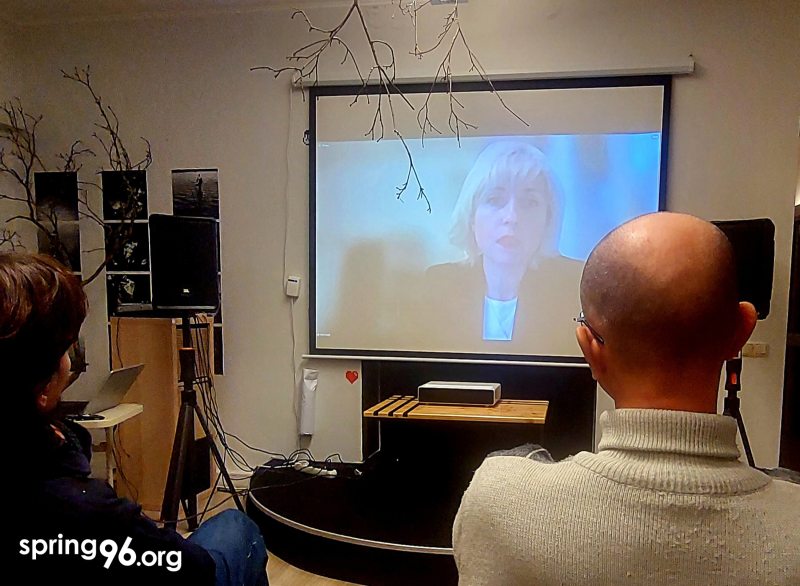
- Liudmila Kazak
Human rights activist and former political prisoner Aleh Hrableuski shared his experience with a psychologist in a pre-trial detention center. The main conclusion is that today psychological assistance in custody is not helping the prisoner, but the penitentiary system itself to integrate them into prison life.
"The only time when I realized that I was talking with a psychologist of the pre-trial detention center was when he asked me: “Well, you're not going to hang yourself here, are you?", Aleh recalled. "My cellmates warned me against saying, "it's too hard for me,“ or ”I can't take it anymore," because then they might register me as suicidal."




